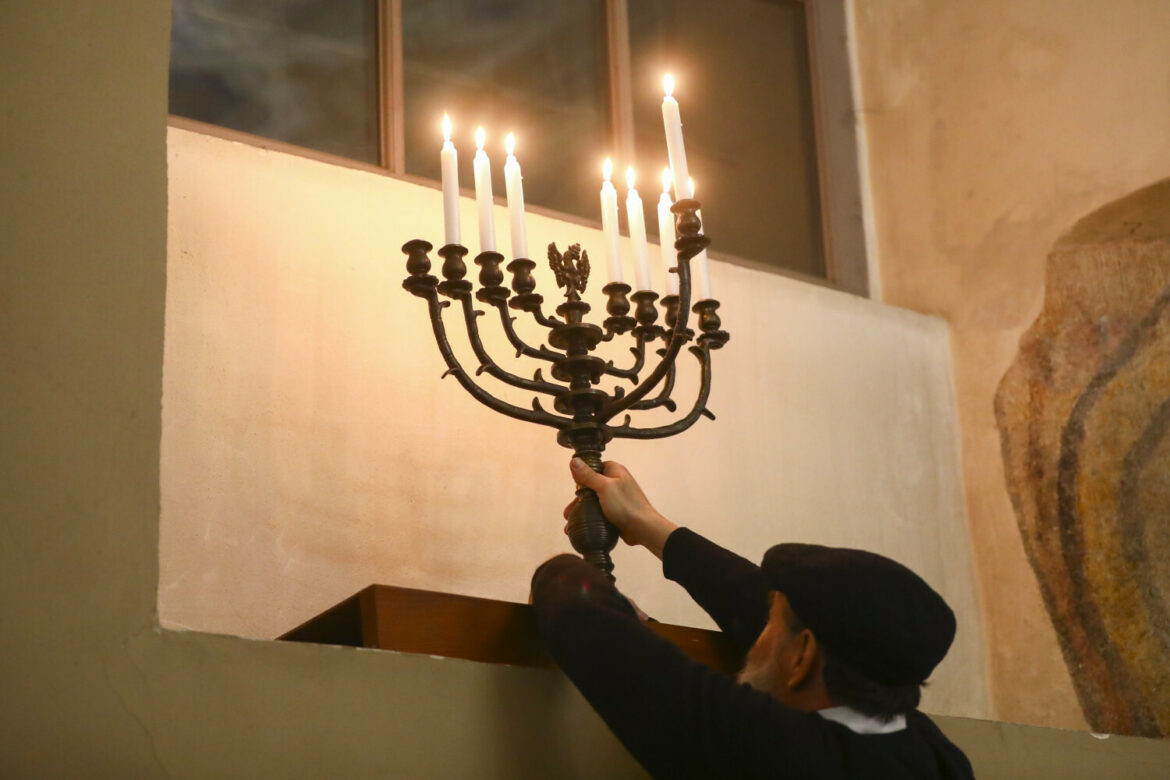Observing the development of Borysław (now in Ukraine) in the second half of the 19th century, Józef Rogosz (1844-1894), a forgotten Galician writer and publisher, compared it to “a weed and a terrible ulcer in oil-flooded meadows”. The merciless assessment of the town resulted from the observation of the dynamic and its uncontrolled development, which at the end of the 19th century became the center of the Borysławsko-Drohobycki Oil Basin. Quick profit-seekers came to it from everywhere, hoping that “black gold” or “black blood”, as kerosene was called, would make them rich. Indeed, more than one “king” of kerosene lived in Borysław and its vicinity.
The town was covered with hundreds of drilling towers, surrounded by a maze of tanks of all kinds and a network of pipelines. There was a strong stench over the Borysław soil riddled with holes like a sieve, as nobody restricted the freedom of drilling in the ground and building oil wells. Every now and then explosions, fires and all kinds of accidents happened. Nobody cared about work safety, and people very often died. In November 1905, as many as 20 shafts burned down, even the Tyśmienica River, flowing through the town, was in fire, and the glow of the fire was also visible in the distant Sambor. Visiting Borysław the famous Polish poet, Leopold Staff (1878-1957) wrote called it “the vestibule of Dante’s hell in one of his letters”.
One of the largest fires, caused by a lightning strike, broke out in 1908. It took four months to extinguish it because the technical solutions did not allow to quench the fire quickly. Hundreds of workers had to use shovels to put the burning abyss out with heaps of earth. The specificity of this work was described in his report by the Polish interwar journalist Melchior Wańkowicz (1892-1974). He noticed that for years it had been performed mainly by the Lebaks from Borysław, predominantly Jews.
Lebaks profession dates back to the Middle Ages. Today it is difficult to explain precisely the origin of the name of this profession. It probably comes from the Ukrainian verb “lebaty”, that is, to collect. Lebaks collected purulent oil stains in “catchers”, that is, dug earth pits in which oil accumulated. They were also often called oilers, riggers and oilmen.
With time, only the poor Jews began to work in this profession in Borysław. The attention of observers was especially attracted by the primitive and time-consuming method of catching the raw oil with a horsehair brush that absorbed the liquid. Then it was squeezed into a bucket attached to the carrier. This work was very hard, sometimes oil was obtained even from puddles. Łebaks were always dirty and grimy with grease. They attracted the attention of the famous photographer Wilhelm Russ (1873-1934) from Borysław-Drohobycz who shot many photographs.
Although the Jewish Lebaks were poor, the inhabitants of Borysław respected and even liked them, appreciating their difficult work. Lebaks were in the highest regard when they decided to join the firefighting actions.





